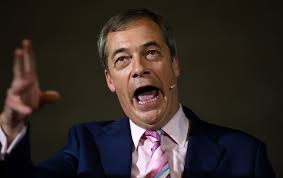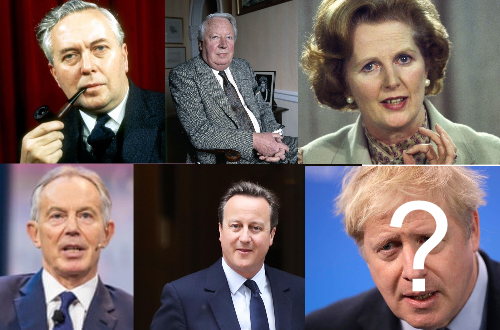There is an excellent article by Shiv Malik on this month’s Prospect, which considers the social and ideological context within which Mohammad Sidique Khan became a mass murdering terrorist.
Shiv Malik met Mohammad Sidique Khan’s brother, and other Beeston residents, in researching a planned BBC drama on the bombings:
In the end, the BBC drama was never made. The script was finished in good time, but the commissioners decided it wouldn’t work as a drama. I was also told that the script was “anti-Muslim.” But as we approach the second anniversary of 7/7, Beeston’s story deserves to be told.
As you might expect, Shiv Malik’s account is not “anti-Muslim” at all. Instead, Shiv Malik paints a picture which chimes in strongly with what many of us have been told by muslim friends: about the tension between old and young, particularly around the question of arranged marriages, between traditional Barelvi and Deobandi/Wahabi religious identities, between the apolitical and the Islamist/jihadist groups.
Most importantly, we hear about the divided consciousness of the emerging generation: trying to make sense of the conflicts between secular, communal, parental, political and religious perspectives, and the tensions between those competing narratives.
Read the following passage. Shiv Malik is discussing Siddique’s actions with his brother, and receives a surprising answer:
During my next few visits to his house, Gultasab remained cagey, even when I asked him uncontroversial questions—like what his brother was like as a kid. I often confronted him on why he was refusing to talk. He usually repeated his line about not wanting to get embroiled in matters that were being dealt with by the police. But on one occasion, in early June 2006, I got a different answer. I was sitting in his house for what would be the last time and we were going through the BBC script when Gultasab told me that he himself had become more religious over the last three years. For some reason, I translated my usual question of whether he thought what his brother had done was “good” or “bad”—he had said that it was a terrible thing several times—and instead asked him whether he thought 7/7 was halal (permitted) or haram (forbidden) in Islam. Only when a look of stunned surprise come over Gultasab’s face did I realise that I must have been asking him an entirely different question. After a brief pause, he replied. “No comment.”
Here, it seemed, was the perfect example of the division between two worldviews—secular ethics and an embattled Islamic faith. How long had Gultasab managed to function with these two conflicting positions fighting within him? Everyday morality told him that his brother had committed a cold-blooded act of terror, while his own Islamic theology told him that there was no clear answer and maybe his brother was a hero. How many thousands of young British Muslims are similarly conflicted?
We repeatedly marvel, as we did a few days ago, not only at the significant percentages of young British muslims who express support for, or acceptance of, remarkable and shocking intellectual and political positions. We were particularly surprised to find that a majority of those polled in this week’s Channel 4 survey believe “that the Muslim community does not bear any responsibility for the emergence of extremists willing to attack UK targets”, while a majority also believe that “the community should be doing more”. How could the same person logically hold two such contrasting views?
It is tempting and comforting to think that these surveys must be fundamentally methodologically flawed. The better explanation may well be that they are not, and that many young British muslims recoil in horror at jihadism, while supporting it politically and theologically, and simultaneously believing particular acts of terrorism are part of a fiendish conspiracy to tarnish the reputation of a faith that they love.
It may not make much intellectual sense for a single person to hold such conflicting views: but at an emotional level, they may well sit together quite happily. In order to combat jihadism, we need to appreciate the nature of the intellectual and social conflict within muslim community which spawns such acts of horrific violence, and the divided consciousnesses which prevent the proper combatting of jihadism.
The failure to engage with the dilemma is not restricted to British muslims: a small embattled minority without the resources, strength, or the structures to do so effectively. Much of the British political and cultural establishment is also guilty of contributory negligence at the very least.
If Shiv Malik is right, and if the BBC did decide not to make the film on Mohammed Siddique Khan because somebody thought it was “anti-Muslim”, that illustrates a depressingly familiar phenomenon. The BBC would have heard Shiv Malik’s explanation of the tensions within the British muslim community which fed into Siddique’s act of terrorism: and simply misunderstood what was being said.
This is why the BBC, and various parliamentarians, have been in the habit of promoting Hizb ut Tahrir as spokesmen for muslim issues. This is why Channel 4 turns to the likes of Abdulrahman Jaffar – an Islamist conspiracy theorist and RESPECT activist – to explain why so many young muslims feel alienated from the mainstream of British society. It is these people who are exploiters of and contributors to that process of alienation.
Nowhere is the point made more graphically than by Siddique’s own “farewell” video:
It has two parts, but it is only the first—about British foreign policy—that ever gets played in the mainstream media. Part two, which makes up three quarters of Khan’s speech, is addressed to Muslims in Britain. Here is an excerpt: “Our so-called scholars today are content with their Toyotas and semi-detached houses. They seem to think that their responsibilities lie in pleasing the kufr instead of Allah. So they tell us ludicrous things, like you must obey the law of the land. Praise be God! How did we ever conquer lands in the past if we were to obey this law?… By Allah these scholars will be brought to account, and if they fear the British government more than they fear Allah then they must desist in giving talks, lectures and passing fatwas, and they need to sit at home and leave the job to the real men, the true inheritors of the prophets.”
It isn’t that British politicians and reporters failed to hear all this. It is just that they chose not to understand.


